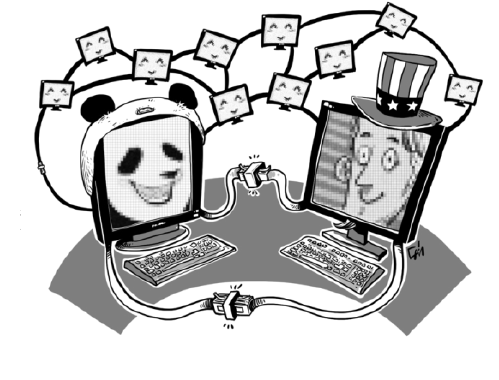Cyber security depends on US cooperation
By Shen Yi (China Daily) Updated: 2015-12-16 10:11
 |
|
Cai Meng/China Daily |
China's attempts to cooperate with the United States to safeguard the strategic stability of cyberspace have been welcomed, as the Chinese mainland and Hong Kong have suffered a series of high-profile cyber attacks this year, according to the latest PricewaterhouseCoopers Global State of Information Security Survey. The average financial loss caused by cyber-crimes in the region, says the report, rose 10 percent year-on-year to $2.63 million, compared with a 5 percent decline globally.
In cooperating to safeguard cyberspace, Beijing and Washington could seek the Internet equivalent of the code of safe conduct agreed between their militaries to avoid naval and air encounters, which has helped manage several bilateral disputes.
The two countries should first try their best to not point the finger at each other in case a conflict over cyber security emerges. The latest round of tensions in cyberspace started in early 2013, when American private security company Mandiant released a report, "APT1: Exposing One of China's Cyber Espionage Units", accusing the Chinese military of stealing US intellectual property.
Such a hysterical attitude, to a point, reflects the US' anxiety over China's impressive economic growth in the recent years. It is, therefore, important that the US seek to adjust its strategic perception of China and accept that the power gap between them is closing.
Beijing, on its part, ought to make more efforts to make its ideas clear to acquire a bigger say in global cyber-security affairs. Besides, neither country, especially the US, should make a habit of "making enemies" by taking irresponsible actions, even for the sake of national security.

I’ve lived in China for quite a considerable time including my graduate school years, travelled and worked in a few cities and still choose my destination taking into consideration the density of smog or PM2.5 particulate matter in the region.











